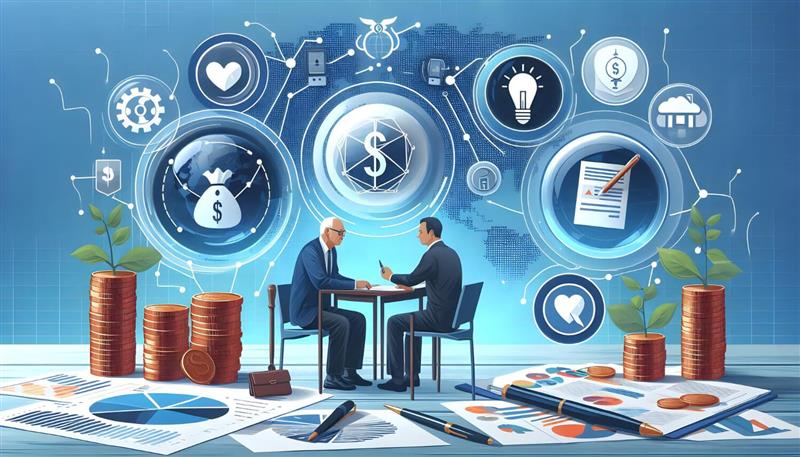How Artificial Intelligence Is Transforming the World
Imagine waking up in the morning and your virtual assistant already knows your schedule, your car drives you to work without touching the steering wheel, and doctors can detect life-threatening diseases even before symptoms appear. Sounds like science fiction? Not anymore. This is the power of Artificial Intelligence (AI) a technology that has already become a part of our daily lives.
AI is not just a buzzword or a futuristic dream it’s the driving force behind some of the biggest innovations of our time. From Netflix recommending your favorite shows, to banks protecting your money from fraud, to robots assisting doctors in surgeries, AI is everywhere.
Today, AI is reshaping industries, redefining human experiences, and unlocking opportunities that were once impossible. In this blog, we’ll explore how Artificial Intelligence is transforming the world—its role in healthcare, business, education, transportation, security, and even in your day-to-day life—along with the challenges and the exciting future that lies ahead.
AI in Healthcare: Revolutionizing Medicine
Artificial Intelligence has emerged as one of the most transformative forces in the healthcare industry. What was once considered science fiction is now a practical reality AI is assisting doctors, supporting patients, and reshaping how medical care is delivered. From detecting diseases early to assisting in complex surgeries, AI is making healthcare smarter, faster, and more reliable.
Early Disease Detection and Diagnosis
One of the most groundbreaking applications of AI in healthcare is its ability to detect diseases at an early stage. AI-powered diagnostic tools analyze medical images such as X-rays, CT scans, and MRIs with remarkable accuracy. For example, AI systems have been trained to identify signs of cancer, heart disease, and neurological disorders much earlier than traditional methods. Detecting these diseases early not only saves lives but also reduces the cost of treatment. Google’s DeepMind AI, for instance, has shown incredible precision in diagnosing eye diseases, sometimes outperforming experienced doctors.
Personalized Treatment Plans
Every patient is unique, and a “one-size-fits-all” approach to treatment doesn’t always work. AI addresses this challenge by analyzing a patient’s medical history, genetic information, and lifestyle to recommend personalized treatment plans. With machine learning, AI can predict how patients are likely to respond to specific treatments, ensuring they receive the most effective care. This personalized approach is especially valuable in areas like oncology, where targeted therapies can significantly improve patient outcomes.
Robotic Surgeries and Precision Medicine
AI is also powering robotic surgery systems that assist doctors in performing complex procedures with incredible precision. These AI-assisted robots can make smaller incisions, minimize blood loss, and reduce recovery times for patients. For instance, the da Vinci Surgical System allows surgeons to perform minimally invasive operations while the AI provides real-time data and insights, enhancing safety and accuracy. Precision medicine, another AI-driven approach, ensures that treatments are tailored at the molecular level, making healthcare more effective than ever before.
Drug Discovery and Research
Traditionally, discovering new drugs and treatments can take years and cost billions of dollars. AI is dramatically reducing this timeline by analyzing vast amounts of biomedical data and identifying potential drug candidates in weeks. During the COVID-19 pandemic, AI was used to accelerate vaccine development and drug research, proving its potential in addressing global health crises quickly. In the future, AI-driven research may lead to cures for currently untreatable diseases.
Check out our work – Subscription – Based AI Education Platform
Virtual Health Assistants and Patient Care
AI isn’t just helping doctors—it’s helping patients directly. Virtual health assistants powered by AI can answer patient queries, remind them to take medications, schedule appointments, and even monitor their vital signs through wearable devices. These assistants provide 24/7 support, reducing the burden on healthcare workers while giving patients peace of mind.
Read More: What Is Artificial Intelligence in Healthcare
AI in Business and Finance: Smarter Decision Making
Businesses are leveraging AI to make data-driven decisions that improve efficiency and profitability. In finance, AI is widely used for fraud detection, where systems monitor transactions in real time to flag unusual activities. Predictive analytics helps businesses forecast market trends, manage risks, and optimize investments. Customer service has also been transformed with AI-powered chatbots and virtual assistants, providing instant responses and improving customer satisfaction while reducing costs.
AI in Education: Shaping the Future of Learning
AI is reshaping classrooms and learning experiences worldwide. Personalized learning platforms powered by AI adapt to each student’s pace, ensuring they receive tailored educational content. Virtual tutors are now available 24/7, providing support beyond school hours. AI also automates repetitive tasks such as grading, giving teachers more time to focus on interactive teaching. Additionally, smart content creation tools generate quizzes, study notes, and even interactive lessons, making education more engaging and accessible.
AI in Transportation: Driving the Future
The transportation sector is undergoing massive changes thanks to AI. Self-driving cars are one of the most talked-about innovations, aiming to reduce road accidents and make travel safer. AI-powered traffic management systems are being implemented in smart cities to reduce congestion and improve flow. Predictive maintenance in vehicles allows transportation companies to identify mechanical issues before they become major problems, saving both time and money while improving safety.
Check out our work – Strategic AI Hub – AI Education Platform
AI in Communication & Media: Enhancing Connectivity
AI has transformed the way we create and consume content. Real-time translation tools powered by AI are breaking language barriers, making communication easier across cultures. In media, AI algorithms are used to generate content, from news articles to social media captions. Image and voice recognition technologies have made communication faster and more interactive, whether it’s through virtual meetings, video editing, or accessibility tools for people with disabilities.
AI in Manufacturing: Powering Industry 4.0
Manufacturing industries are adopting AI to optimize operations and increase productivity. Smart factories use AI to automate production lines, ensuring efficiency and reducing human error. AI-driven quality control systems can inspect products at lightning speed, maintaining consistency and minimizing defects. Supply chain optimization powered by AI helps businesses manage logistics, forecast demand, and reduce operational costs, giving companies a competitive edge.
AI in Security & Defense: Strengthening Safety
AI plays a crucial role in strengthening national and cyber defense. In cybersecurity, AI systems detect and neutralize threats in real time, protecting sensitive data from hackers. Autonomous drones and robots are being deployed for surveillance, border control, and search-and-rescue missions. AI-powered smart surveillance systems can monitor vast areas, identify unusual activity, and respond faster than human operators, making both physical and digital environments safer.
AI in Daily Life: Making Everyday Smarter
AI has seamlessly integrated into our daily routines. Virtual assistants like Alexa, Siri, and Google Assistant help us manage tasks, play music, or control smart home devices with simple voice commands. Personalized recommendation engines suggest movies, music, and products based on our preferences, improving our online experiences. Smart home automation, powered by AI, manages lighting, temperature, and security, making our homes more comfortable and energy-efficient.
Challenges & Ethical Concerns of AI
While AI offers countless benefits, it also comes with challenges. One major concern is job displacement, as automation could replace certain human roles. Data privacy is another critical issue, as AI systems rely on massive amounts of personal data, raising concerns about misuse. Additionally, algorithm bias can lead to unfair treatment if AI models are trained on flawed or biased data. To fully harness AI’s potential, it is essential to address these ethical concerns responsibly.
Future of AI: What Lies Ahead
The future of Artificial Intelligence holds endless possibilities, with its potential expanding far beyond what we see today. While AI has already made remarkable contributions in healthcare, finance, education, and transportation, the coming years promise even more transformative breakthroughs. Here’s a glimpse of what lies ahead in the AI-driven world:
1. Hyper-Personalization in Daily Life
AI will continue to make human experiences more personalized. From customized shopping recommendations to personalized education paths and even tailored healthcare treatment plans, AI systems will predict user needs before they’re expressed. For example, wearable devices combined with AI could continuously monitor health data, alerting individuals to possible health issues before symptoms develop.
2. Smarter Healthcare and Biotechnology
AI-driven precision medicine will reach new heights. Doctors may be able to create treatment plans based on a person’s genetic makeup, lifestyle, and environment. AI could accelerate drug discovery, making it possible to develop cures for complex diseases like Alzheimer’s or certain cancers much faster than traditional methods. Robotic-assisted surgeries will also become more precise, reducing recovery times and improving success rates.
3. Autonomous Systems and Robotics
The future will witness advanced AI-powered robots that can work alongside humans in industries like construction, logistics, and elderly care. Fully autonomous vehicles cars, drones, and even delivery robots will become a reality, reshaping how people travel and goods are transported. This will improve efficiency while reducing accidents caused by human error.
4. Ethical and Responsible AI
As AI evolves, ethical considerations will take center stage. Governments, organizations, and global institutions will need to ensure that AI systems are fair, transparent, and unbiased. Issues like privacy, security, and job displacement will require careful handling. Regulations and ethical AI frameworks will play a crucial role in balancing innovation with responsibility.
Check out our work – FluencyEdge – Language Learning Website
5. AI and Human Collaboration
The future of AI is not about machines replacing humans, but rather about collaboration. AI will take over repetitive, data-driven tasks, freeing humans to focus on creativity, problem-solving, and innovation. This synergy will lead to new job roles and industries we cannot even imagine today.
6. AI in Climate and Sustainability
One of the most promising applications of AI lies in addressing climate change and sustainability challenges. AI-powered systems could optimize energy use, improve agricultural yields, and monitor environmental changes in real time. Smart grids, green transportation systems, and climate modeling will all benefit from AI’s predictive capabilities.
7. General Artificial Intelligence (AGI)
While today’s AI is narrow and specialized, the next big milestone is Artificial General Intelligence (AGI) machines capable of performing any intellectual task that humans can. Although AGI is still in the research stage, progress in deep learning, neural networks, and computing power is bringing this vision closer. AGI has the potential to revolutionize every aspect of human life, but it also raises profound ethical and safety questions.
8. AI-Powered Global Economy
AI is expected to be a massive driver of global economic growth. Studies predict that by 2030, AI could contribute nearly $15.7 trillion to the global economy, making it one of the most valuable technologies ever created. Industries that adopt AI early will have a significant competitive edge.
Conclusion
Artificial Intelligence is no longer a futuristic dream it is already here, reshaping industries and everyday life. While challenges remain, AI has the power to unlock opportunities, solve global issues, and create a smarter, more connected world. The future belongs to those who embrace AI responsibly and use it to innovate for the greater good.
Frequently Asked Questions About Our Blog
Artificial Intelligence (AI) refers to computer systems that can perform tasks usually requiring human intelligence, such as problem-solving, learning, and decision-making. AI is transforming the world by revolutionizing industries like healthcare, finance, education, transportation, and daily life, making processes faster, smarter, and more efficient.
AI is revolutionizing healthcare through early disease detection, personalized treatment plans, robotic surgeries, and drug discovery. AI-powered diagnostic tools can detect illnesses faster and more accurately, while virtual assistants and predictive analytics improve patient care and medical research.
In business and finance, AI enables predictive analytics, fraud detection, and automation of repetitive tasks. Companies use AI-powered chatbots for customer support, optimize supply chains, and make data-driven decisions to improve efficiency, profitability, and customer satisfaction.
AI raises ethical concerns such as job displacement, data privacy issues, and algorithm bias. Responsible AI development, transparency, and regulations are necessary to ensure fairness, protect sensitive information, and balance innovation with societal impact.
The future of AI promises advanced human-AI collaboration, autonomous systems, and hyper-personalized solutions in daily life, healthcare, and business. AI is expected to address global challenges like climate change, healthcare innovation, and economic growth while emphasizing ethical and responsible use.
![circle-shapes]()











